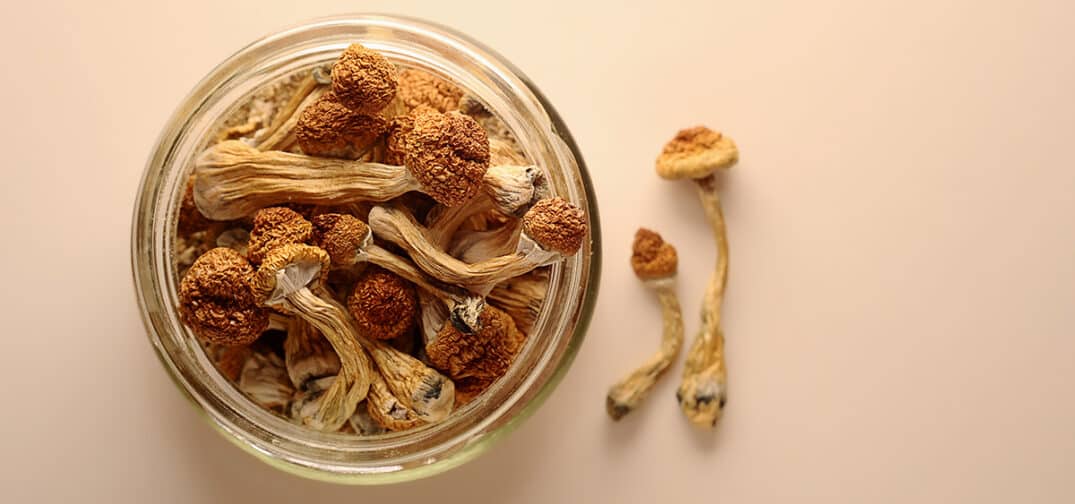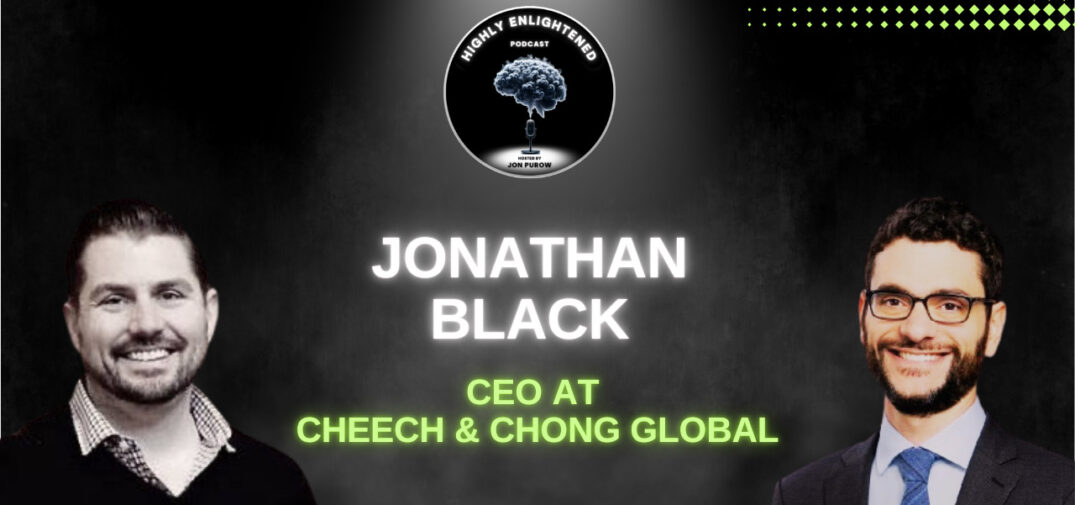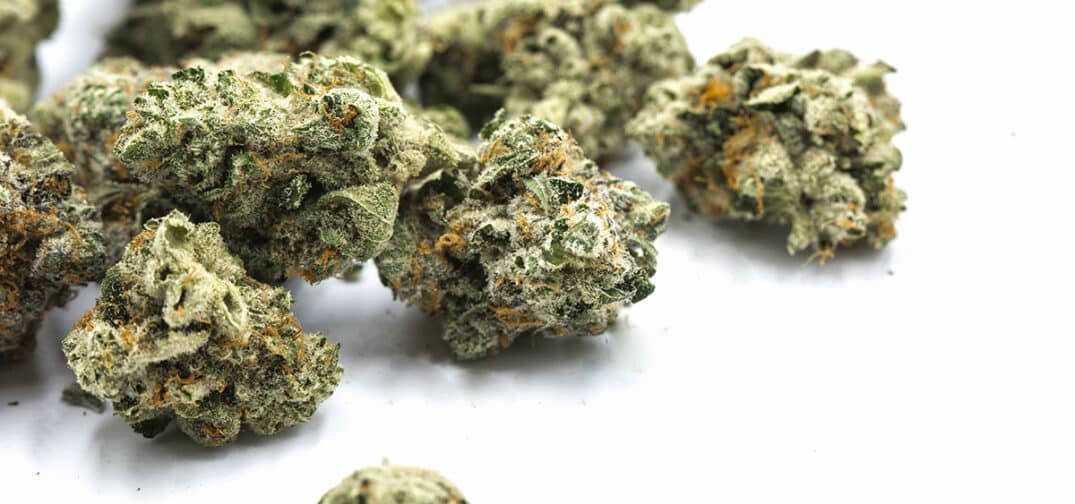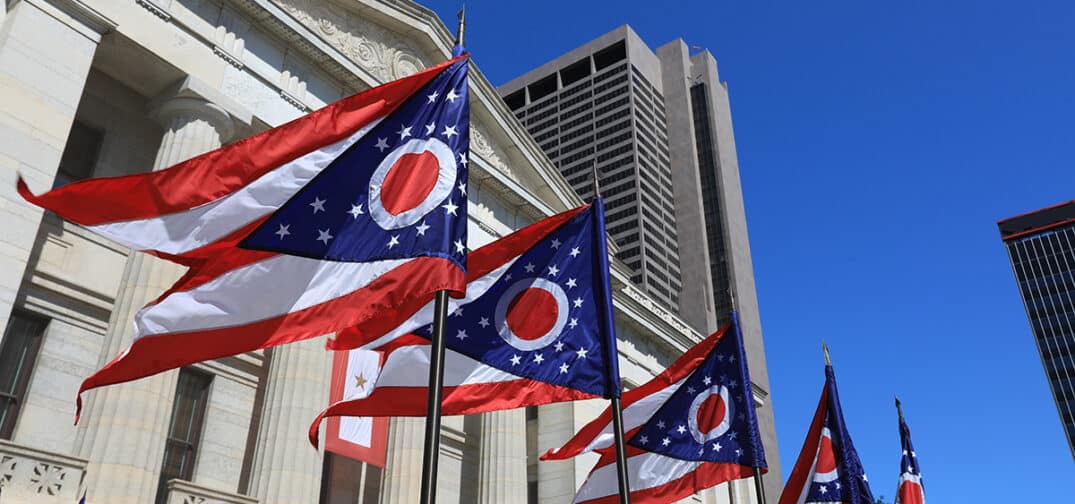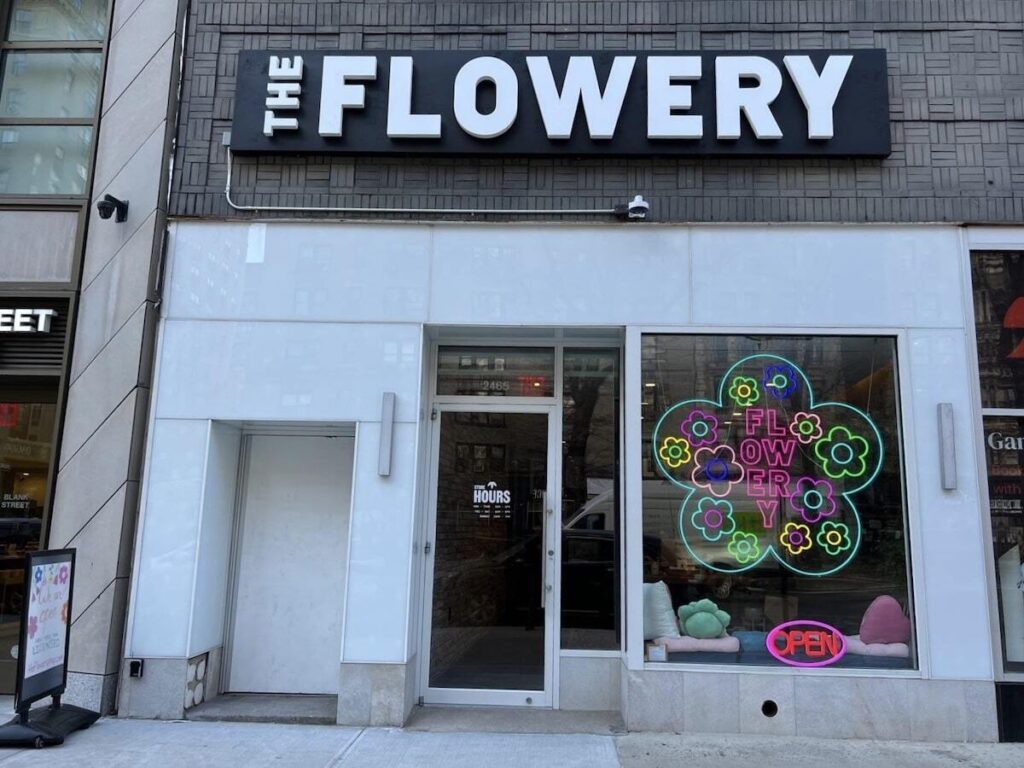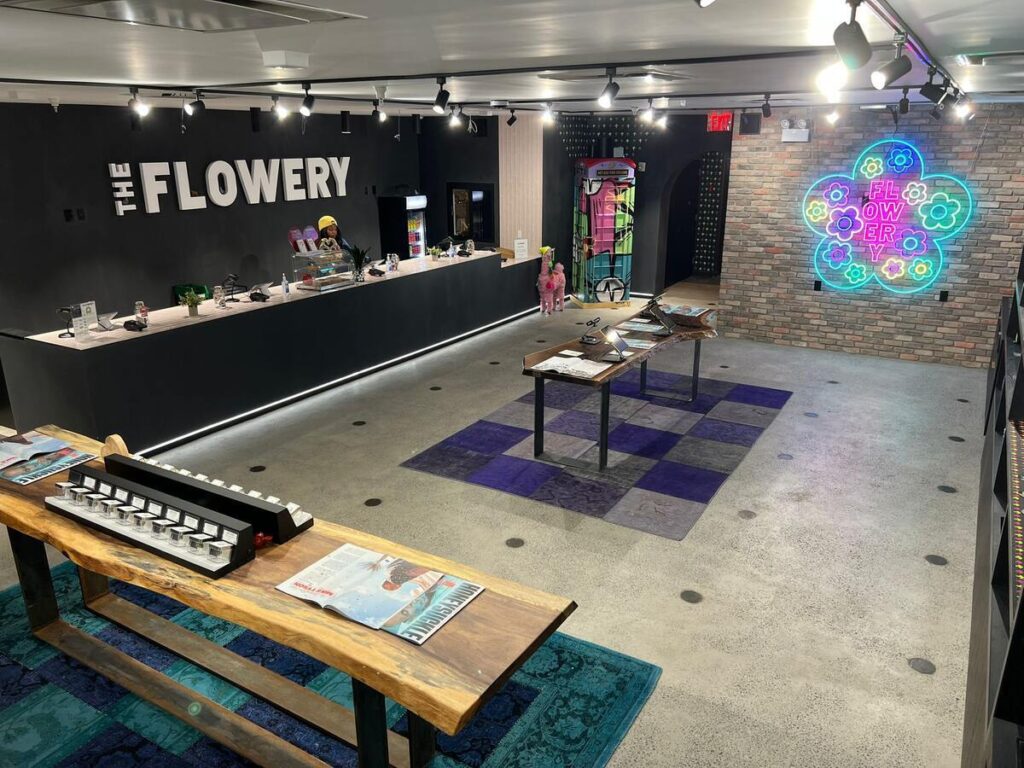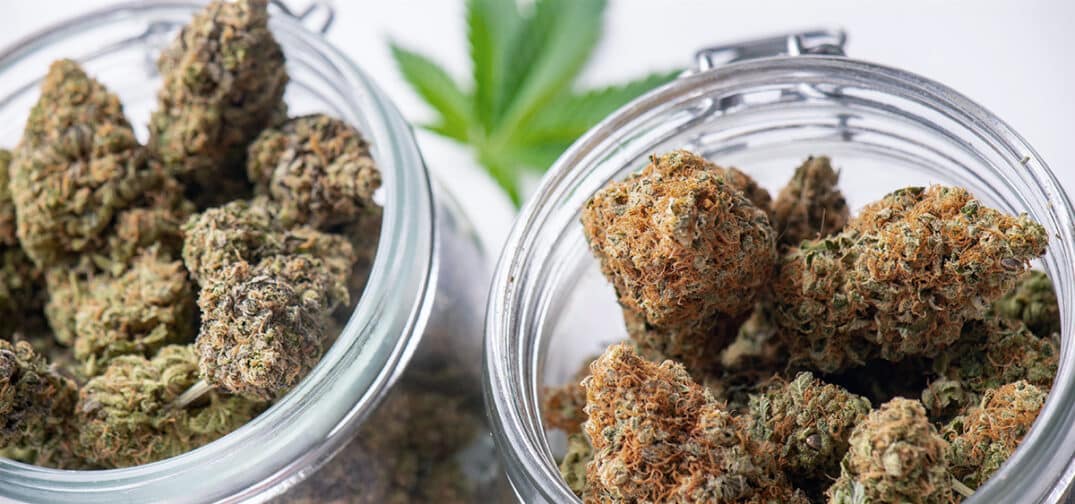In this episode of Highly Enlightened, host Jon Purow interviews Jonathan Black, a seasoned business attorney and entrepreneur with expertise across real estate, entertainment, tech, retail, cannabis, and law, currently serving as the CEO of Cheech and Chong’s Global Holdings. After earning his degree at the University of San Diego and completing law school, Jonathan founded Weston Law Group PC. Over the years, he has also worked on securing government contracts, managed a real estate fund with over $200 million in assets, and produced two Hollywood films. In 2019, he became the COO of MediaJel, a cannabis Adtech company, and, through multiple successful exits, continues to hold ownership and board positions in various ventures. Jonathan resides in the Bay Area with his wife and three children.
Listen to the episode below or wherever you get your podcasts — you can find more episodes of Highly Enlightened on Buzzsprout.
Listen to the episode:
Episode sponsored by eBottles
This episode of Highly Enlightened is made possible by eBottles. If you’re in the cannabis business, you know that quality packaging isn’t just important—it’s essential. That’s where eBottles comes in. Whether you’re just starting out or scaling up, eBottles offers proprietary top-of-the-line packaging products built for cannabis. eBottles is a market leader for a good reason: they are experts in the field. Six patents, five warehouse locations around the country, a network of exceptional distributors. Get eBottles and Grow Boldly.
Read the transcript:
Editor’s note: this transcript was automatically generated and may contain errors.
Jon Purow:
Welcome to a Highly Informed Interview episode. I’m your host, Jon Purow. Now, before we get to an awesome interview, I just want to note that any opinions I express are my own. As always, I have to do my quick prayer to the video chat. Gods may. Our wifi connections be sturdy. All dogs and my children remain quiet and may Amazon Prime another time. Amen. Alright, now I have the pleasure of introducing Jonathan Black, the CEO and Director of Cheech and Chong’s Global Holdings Company. How are you doing today, sir? I want to thank you for taking the time out of your busy schedule to join me for this joint endeavor. Pun is intended.
Jonathan Black:
I love it, Jon. I love it. Thank you for having me. It’s a pleasure to be here and chatting with you.
Jon Purow:
Yeah, no, so look, I always start off with just the hard hitting question, right? So it gets easier after this, so out of exactly, just like I’m just going to crush you right at the beginning, just so it seems easier after that. So how much of your success, how much do you think what you’ve been able to accomplish in life is owed to the fact that you have the best first name in the history of humanity? Not that I’m biased.
Jonathan Black:
All of it. All of it. All of it. Isn a part of it.
Jon Purow:
Okay, perfect. That’s the right answer, right? It only gets easier from here.
Jonathan Black:
It’s a great name, man. I love the name Jonathan, and obviously you have the same similar love and passion for the name that I do. So
Jon Purow:
Does anyone call you Johnny, is the question?
Jonathan Black:
No. When I was younger, some of my uncles would call me John. John. I don’t know where that came from. There’s been other nicknames I’ve had that are probably not verbally appropriate to express on your podcast growing up playing sports because I definitely was tenacious in what I was trying to accomplish.
Jon Purow:
You’re going to have to tell me that one after, right?
Jonathan Black:
Absolutely.
Jon Purow:
It just lends to so many nicknames. I mean, since I now am saddled with the nickname Broke Back, John, since I literally broke my back jumping in Jamaica, I just think it lends itself to nicknames there, but that’s great. So I’m glad to hear that This’s worked out so well for you. So look outside of Brian Gerber from Harris Supply. Basically everyone that I’ve spoken to on the podcast came from somewhere and was working somewhere before coming into the industry. So I’m curious, out of all the experiences, indoor skills outside of being named Jonathan that you brought from your prior work history and everything into the cannabis industry, what do you think was the most helpful and why?
Jonathan Black:
Yeah, that is a really good question. I have a very diverse background and experiences. My attitude in trying to find out what I wanted to do was learning by the things I didn’t want to do, engaging in things I didn’t want to do. I was with publicly traded companies. I owned my own businesses myself. And so ultimately, I think the best experience that I had was really in some of the ownership of small businesses, growing businesses, even selling businesses. I always had great partners. That was kind of the key to success. And here at Brandon Harshberger, the president of Chichen Chang Global Holdings is a fantastic partner. So a lot of the things that I learned was if you want to grow, how do you trust in people? And this was throughout these companies experiences from standard Pacific Homes all the way to owning several different businesses myself.
It became something I learned in order to grow, you’ve got to have a way of dividing up what each person is good at, putting them in their best position, trusting the people that you have with you to do their job. And so what I took from that was obviously branding and what a company should look like and what things should feel like and what a consumer experiences when they’re making that snap judgment on a product. They might be on their phone standing in a dispensary, they might be in front of a glass door looking at drinks. They might be online shopping. What does that experience in that consumer activation look like? And so that goes from branding a name, something people can trust and something people want, a product that you’re proud of. Early in my career, I made two movies, not very proud of them. I produced those, raised the money, went out and made and had theatrical releases and they were crap, but they made money. And
Jon Purow:
May I ask what they were? Do you not want that to be public information? Are
Jonathan Black:
You actively running? Yeah, no, no. Yeah, I mean, I made Dark House early on in my career and I don’t mean crap mean we had some really good actors, a great director, my co-producer partner on it was awesome and amazing, but they weren’t something that was going to get an award. We weren’t winning an award. We put together a way of trying to monetize a horror movie into income, which we successfully did twice ultimately. But something I learned a lot from that, right? I learned a lot in dealing with celebrities, number one and number two obviously how to put together a production in the team and trust in the team and what everybody was going to do in that. So I think that when you look at all the experiences from movie making to land acquisition, to running government contracts, to working for California Assembly and the governor in the process of working on bills and building multiple businesses, working on taking them public, obviously I was at Media Jail for a while too.
Building this ultimate idea of what a brand should be, a look and a feel is very important. But definitely having people around you such as a good partner in Brandon that I trust, or previous to that Jake Lit key who I trusted a lot and liked a lot is so important because it’s so hard at the top to make a company maneuver in a manner in which you want it to grow because you got the day-to-day ultimately, and then you got the long-term vision. And sometimes those things will collide for a variety of different reasons. It could be finances, it could be personnel, it could be products, it could be legislation. So ultimately in my mind, having an ability to work side by side with somebody is important as it is the understanding. I feel like a lot of CEOs have their board and then they have people that they kind send orders to, so to speak.
And you’re operating on only so much information. So assuming a good CEO is operating on 10 to 20% of the information available to make a decision, if you have a partner in that business with you, that moves you up to 20 to 40%, right? Your chances of getting it right, almost double. And so that’s been kind of crucial in my experiences is finding the right team. I think people invest more in teams than they do an idea. Ideas are great, you got to have a good idea, but if you don’t have people that can execute, ultimately it’s just a good idea.
Jon Purow:
No, a hundred percent agree speaking as someone who’s in intellectual property, an idea isn’t worth anything. It can’t get protected on its own. It’s the team. So I think that to a certain extent, you almost even kind of segmented into an answer for the next question in terms of advice that you would give regarding leadership to leaders in the cannabis industry. So I think one of the first things you say is pick the right team starts with that,
Jonathan Black:
Pick the right team. And I think ultimately, besides picking the right team, it’s trusting the team and giving them room to operate as team players. I think the other thing you got to look at is what are the things that bite people or cause difficulties in the situation? And so I really look to four factors ultimately in that. One is the grass is always greener. So comparing against another company is, I think problematic because you have no idea the details in which you’re comparing to. You’re just looking at whatever they’ve posted on LinkedIn or Facebook or wherever it is of their success in that moment, but you have no idea of the stride that they went through to get there and what it may have cost them to get it. The second one, which is a big one, is the attitude. We’re not going to make it right. That attitude has to go away. If that’s the attitude going into something, it’s not going to work, right? It’s doomed ultimately there. The third one I look at a lot is we’re not good enough. That concept of we’re not good enough or that imposter syndrome that follows people around through their careers is absolute bs in my mind. I think if you put your mind to something and you’re willing to work at it and you’re willing to take time to understand it, you’re as good as anybody else out there ultimately.
And I think the issue is people operate on not enough information. And ultimately the last one that comes to mind a lot of times is just an ability for people to be able to, what are the three characteristics of a person’s makeup and looking at a problem or solution. And to me, if they have a work ethic desire to want to learn new concepts and ability to speak their mind to address things that people aren’t going to want to hear, they have room for that. You’ve got a successful personnel around you and a successful culture, which is everybody wants to talk about culture, but I see these ploys that don’t work like pinball machines and drinking at noon on Fridays or whatever it is, that’s great, but the culture that needs to be there is people are able to express the dissent in a situation without fear of losing their job or fear of backlash from another coworker.
That attitude, I guess the fourth one really is people are out to get me kind of attitude. It has to go away. You’ve got to be able to express dissent, and if you feel everybody’s against you, you’re not going to express descent. So that’s kind of the four factors that ultimately we try to look at and do. I think Brandon would say we try everything once, which is a great slogan, but I think it’s a little more detailed in how I look at it and how he looks at it in dealing with the team both internally and externally with partners, vendors, people we’re doing business with.
Jon Purow:
I recently tried to put it together in my head by saying that we become what we fear, and the way that you kind of express that there is it’s negative energy in a work environment of different types. We can’t pull this off. I can’t pull this off. I’m an imposter. And your goal is essentially to have a workplace environment that doesn’t have any of that, right? And even something that you could look as being a dissenting viewpoint is an opportunity to learn something. And so if you don’t, and a dissenting viewpoint is an opportunity to be creative, and if you’re to create an environment that stifles that, and I mean so long as you have the people who could execute it because they have the work ethic, they have the intelligence, and they have that enthusiasm, I think you eliminate those things. I think it’s just very, very astute what you’re saying that you could accomplish anything with the right team members in that environment. So I think that that’s super valuable advice. What would you say is one of the main things that you’ve learned as a leader specifically in the cannabis industry? I
Jonathan Black:
Learned leading is very, very tough ultimately being a leader. I guess I joke with other people like this is the last time I played the role of CEO, I’ll be a board member going around. I think leading is ultimately very tough. You can’t lead from the back of the field. You’ve got to be out in front of it. You’ve got to be experiencing it. You’ve got to want to have the hard conversations and understand concepts. You’ve got to be flexible on how you plan ultimately the scope and the direction of the company because I think people get cemented into what they tell board members or investors. And without flexibility, there’s no room for growth. You need fertile soil or you can expand roots. So when I look at leadership, and I don’t think I’ve necessarily done a great example of this for my team throughout the whole time of being CEO of this company. I think I’ve struggled with it to be just really honest. But I think ultimately with the right people around you, you will get it right. You will get on track with it and it’ll start to come together. But you need the grace of people that work for you and you need to give them the grace that you have backwards and forwards. So that can cement itself into a strong working relationship and bond.
Jon Purow:
Got it. So obviously Chechen Chong, in terms of old school brands, name recognition, you’re starting with that mean. So putting that aside, what do you think are some of the biggest factors in how you’ve been able and how the company has been able to grow over the years?
Jonathan Black:
Yeah, it was tough. I mean, ultimately Tommy and Che came back together to curate this brand. At the end of the day, they made the decision to come together and get this to work. There was some lineage stuff that had been done that had to be cleaned or tweaked. They both had their separate brands going when I walked in the door, which was very, very confusing for a consumer, for the public offering and where these products were being offered and the style in which they were going accustomed to. But they came together. And so I think as the brand came together and the marketing side like Steve Gunn and Brandon who just understand ad buying spots and creative more so than I will ever, we were able to make something more of it. It’s shocking because some people recognize the name but couldn’t tell me a movie or a joke from the guys just because they’ve seen so many ads, endless ads out there from us.
So I think the big thing, that’s a big mistake. We use Ben Mason at Pillars or Agency. We’ve invested a lot into the marketing side of this company. I think you have two extremes. People that invest too much. People don’t invest anything into it because they feel like, Hey, we got to get products on shelves. Getting products on shelves is half the battle. Consumer interfacing is other half the battle, and people spend too much on marketing the product’s on the shelves. They’ll sell it, but people will come back and buy it. So there’s a very delicate balance there in getting a brand and branding a brand and marketing a brand that has to make sense. Are you getting ROI off your advertisement? Our DBC has been our massive driver, our engine of the company. And so thankfully that branding and that exposure and that advertising dollar that we’re spending continues to lift the high tide of the whole boat on other things that we’re doing and recognition in what we’re doing.
And then we have 52, 54, sorry, 54 years of lineage with Tommy and Chi, right? Just amazing, amazing lineage. Here’s two guys that have been trying to say cannabis should not be a situation where it’s banned, right? Cannabis is something that you can utilize, be functional in a lot of cases it’s necessary for people. And so they wanted to really try to get that message across. I hope that we are, but we do it in a fun way because they’re comedians and we want to echo their thought process, their creative process in our branding and our marketing and our products.
Jon Purow:
The podcast is proud to be sponsored by Ebos. If you’re in the cannabis business, that quality packaging isn’t just important. It’s essential. That’s where Ebos comes in, whether you’re just starting out or scaling up bottles offers proprietary, top of the line packaging products built for cannabis bottles is the market leader for a good reason. They’re experts in the field, six patents, five warehouse locations around the country, and a network of exceptional distributors. So get ebos and grow boldly. Yeah. The other thing that’s interesting about them is that I think I mentioned to you when we first spoke, my father showed me up in smoke when I was way too young, but you hit that age group demographic, then you have that seventies show with Tommy, and then you have what Chee and Nas Bridge is. So there’s another generation in between that gets familiar with them. And so now I’m almost curious a little bit, how do you reach the current youngest generation with that brand? Is that just purely in terms of leaning into marketing and social media a certain way? Who do you feel that you most cater to and how do you cater to the folks that might not necessarily immediately have that name recognition, that puts a smile on their face like it does for me, full disclosure.
Jonathan Black:
And John, that’s an awesome question, right? Because I think that so many people have been stuck in this faction of this is what they are. Well, Tanya played the Yakkin, Zootopia and Che was in Lion King, right? They were voices. So ultimately you continue on, so to speak. But I think when you look at the branding of it, Jack Daniels is no longer alive. Jim Bean has long since passed. A lot of these name brands that are out there, Evan Williams is gone. I’m just mentioning a few alcohol arms. There’s other ones, so and so forth. These people have long since passed. And the reason why the brands continue is because of great marketing effect and knowledge of consumer. When you look at a consumer buying something in front of the glass door, looking at their phone, not thinking they’re reaching for something that they know is a product in which they want, how do you get ’em there?
So yeah, I think it’s a lot of endless branding. We just did the Call of Duty with Tommy and Cheech. They have skins in the game. So again, there’s another reach of another audience. But one of our biggest surprises, John was on our Hemp Thrive beverage is women between the age of 25 and 50, where our biggest consumer and I had always heard, well, you’re not going to reach women. It’s an audience for this. It’s an audience for that. It’s not true. They saw the name, they believed that this would be a product they should try, and they tried it and they loved it on the hemp drive beverage side in mass retail. So seeing stuff like that just tells you Peach and Chang can really become the next Coca-Cola of the plant of this industry that’s emerging. If I don’t screw it up ultimately, or we don’t make bad decisions, we have a runway to do that because the reach is there. But yes, commonly when you and I talk, I think it’s hilarious. My mom knows him from up in Smoke. My mom recognizes him from there. I recognize she’s from Tin Cup, right? In seventies, as you said,
Jon Purow:
Great movie.
Jonathan Black:
And my daughters recognized him from the Yak, right? You, me talking to him,
Jon Purow:
We just watched that movie,
Jonathan Black:
The Yak daddy, the Yak Daddy, and or The Lion King. And so I think that you have multiple generations in my household that recognize them for different reasons, which is important. But I think consumers recognize these guys have been around for a long time. There’s consistency and they wouldn’t put their names on a bad product and the branding, they’re consistently seen. So it’s developing even further past the lineage of just a movie career or celebrity fame into a household name and brand. And it’s amazing the references to them. I was watching Billions and they said up in Smoke like Chi and Chong, they made a reference to it, and it’s like,
Jon Purow:
Great show.
Jonathan Black:
Yeah, great show has absolutely nothing to do with, I know, I know with
Jon Purow:
Cannabis, but it’s cultural cache, right? It’s cultural cache. And in a world where I feel like everyone should learn about logical fallacies and be reminded of them frequently, where a lot of endorsements are all about appeal to inappropriate authority. Why does a sports star have any basis for telling you what car to buy? The fact of the matter is when you have celebrities that are so associated with a specific type of product that comes with that understanding on the consumer side, that trust level of there’s quality here, and you combine that with product diversification to cater to different demographics like you said, and just having that little built in thing and then sticking the landing with a quality product that meets people where they are, that’s where you could really accomplish stuff.
Jonathan Black:
You’re a hundred percent right, but John, you bring up an important point. It is very tough in the world of soundbites in the world of things that you see going on. I literally saw Peter Theo, who’s, I love watching him and Steve Jobs whenever they talk or there’s a video online, I stop what I’m doing. I’m watching these guys, even if I’ve seen it or watched it again, because they’re just common sense to business practices is something that you would think would be well known, but is often missed because it’s just a common sense practice that they’re applying application. But he gave a talk, I think it was to the graduating class of Harvard or something. He gave a talk just recently talking about the clip of the Hawk Two girl that’s out there and how this is just insanity. And so we are in this competitive means. We do participate in stuff like that for advertisement and pushing to the brand, but it is a different world, which is nice to have people that have been for movies and TV because it can ascend into the TikTok side of things. That has really grown into how people understand and become accustomed with brands and things that are out there
Product wise. Yeah.
Jon Purow:
Can I ask you one time where you, when all was said and done with the business where you kind of just said to yourself, F Yeah, we really nailed the landing on something hard here, out of curiosity.
Jonathan Black:
Yeah. We did a Benny’s launch in Illinois. Benny’s is a large liquor store retailer in Benny’s, a lot like BevMo in California or seven 11 in this specific area. And we did a launch there and we brought the guys out and we just nailed it, went through pallets and pallets of drinks, and I was just blown away. We didn’t know, Brandon and I were very nervous going into that situation on how this would work out, how this activation would go. It was really our first big retail activation on B2B side, which is the thing we’re drastically trying to lift. We’d done it on the canvas side, it worked out and opening up the dispensary as and Massachusetts and New Mexico, and lines around the block and numbers are fine and things are great, but we hadn’t done it on the mass retailer audience spectrum in a liquor store, multiple service liquor store.
And we were just really concerned going into it. And when we were leaving, we gave each other a big hug, and we were just so excited that it had worked, and we always believed that it would, right? It wasn’t a disbelief going into the situation by any stretch, but you get anxiety and you’re nervous about how will this go? How will people respond? People were camping out in line to meet the guys. Obviously it was fantastic. But then the sales throughout the whole retail store cycle, not just the store we’re in, but just overall the mass audience and the activation was just incredible. And we did a lot of work. Our CMO, Brooke did a lot of work on that. Pillar did a lot of work on that. Ben Mason with Pillar and our COO Jay Bueno did just an amazing job putting this all together. And it worked. And it was a sigh of relief, honestly, John, because I didn’t know. I did not know that we were going to,
Jon Purow:
That’s the fear of the unknown when you’re sticking your neck out there and stuff, and those are the ones where you say, heck yeah, right. We stuck the landing on that. I got it. So now we were talking, I mean, we’ve been starting to talk about already and alluding to it how you folks are in the hemp industry and stuff. So I am just curious to know, when we were pre-gaming a little bit, we were talking about some of the most interesting things in the industry, and you were alluding to some of these ideas of hemp and state licensed cannabis and also cannabis and alcohol. So what are some of the most interesting things that you’re noticing in your unique position in the industry with respect to those dichotomies, those classes?
Jonathan Black:
Yeah. Yeah, no, great question. Yeah, we were kind of going around about this a little bit before, but one of the big things I’ve noticed is that there’s this idea that there’s a war between hemp and cannabis or ultimately alcohol and cannabis or at this divide. And cannabis is the headwind against alcohol for the slumping sails or hemp is the headwind against cannabis for its slumping sails. And I just think it’s completely ridiculous based on the numbers that when these seeds get planted, ultimately people hear it enough where they get emotionally attached to it and then they start believing it, and they start using emotions instead of facts to justify their position. And it doesn’t exist. I mean, if you look at, take California for a second, we’re working right now to set up 40 brands both on the Canvas side and total 40 brands, but brands from the cannabis side and Brandon from Hemp side, which we are on both in California, to come to a meeting and work on legislation for California for the governor who just executed emergency order, which we feel was misplaced, but we want to work with the governor.
We want to work with all politicians on this. We don’t get upset because they didn’t see it our way. We just have to handle it in a manner and mechanism that we’re given. But I think when you look at this, I don’t think that by the numbers, I believe it’s like 6.5% of dispensary sales in California or beverages. And ultimately of those beverages, less than a fourth of a point are under 10 milligrams. So we are not having a low dose hump drive drink in BevMo or Total Wines is not affecting their business. In fact, it’s opening the door to a compliance, a taxation methodology that we want cannabis to follow through. We want our cannabis products. We have a chia lot of those 50 milligrams in California that we
Jon Purow:
Love,
Jonathan Black:
And we want that drink to be eventually on the shelf, you would have a beer and you have liquor. There’s different proofs, there’s different amounts that people drink of it. There’s different
Jon Purow:
Consumers. Exactly.
Jonathan Black:
And so to think that one size fits all or we’re preventing them is absolutely ridiculous. And then when you look at the cannabis and alcohol side, well, first of all, some of the alcohol players IE, the distributors, the retailers, even the production mechanisms, and we use some of those producers that make beer have come over to this site already. We’re working together. And to say there’s this divide because alcohol sales or something is just ridiculous during covid, alcohol sales blossomed, and now you’re coming off of that, you’re going to go downwards.
And that’s just the fact of the matter. It doesn’t have anything to do with it. Someone that wants cannabis, wants cannabis, someone that wants alcohol, wants alcohol. It’s nots, not a competitor. It’s not like I can walk in today to, again, a seven 11 and oh, should I buy beer or should I buy a blunt? That’s not happening. I’m specifically going to a dispensary or I’m specifically going to seven 11 to buy alcohol, so to speak. So not one and the same thing. And so this gets a little bit disturbing because these seeds are being sprinkled out there and people are ingesting this. And it’s not actually situated in any kind of factual numbers that I can see other than the fact that one’s going down and one’s going up. But it doesn’t mean that they’re necessarily related to each other, the expansion,
Jon Purow:
Correlation, and causation.
Jonathan Black:
Yeah.
Jon Purow:
Yeah. I mean it just don’t get confused about the two. By the way. Can I just say I am a little bit worried that you might come for my podcast hosting job with my pop puns because you kept on saying planting the seed, right? Ingesting, I mean, you just naturally pun, sir. So I mean, I tip my cap on that, but I honestly think that one of the most interesting statistics I’ve heard is that statistic that you said in terms of how strong the beverages in the state license market are, right? Versus how many are low dose. And that just speaks to when we’re talking about product diversification before to cater to different demographics. I always like to say the cannae versus the canna curious. So what that’s implying is that the cannae with the higher tolerance are the ones who are buying the beverages in the state licensed market.
And frankly, for the good of the industry, we don’t want necessarily higher dose things. On the hemp side, there is a model here, potentially we don’t want higher dose things because as people saw with Delta eight and stuff, when people are interacting and when the consumers, this is old hat to us, we speak the vocabulary, we have the tolerance, but the vast majority of consumers don’t know about the different cannabinoids. And it’s just you’re trying to educate people in a time when their attention spans are smaller and smaller, that you want low dose there, frankly, just because it guarantees that more people have a positive experience the first time they do something
Jonathan Black:
Right. I think that’s ultimately important. When you look at the hemp category versus looking at the cannabis category, you have two totally different consumers in my mind, someone like Joey Marin, Che’s son, who’s our chief product officer, is not going to go out and buy a bunch of our drinks because it’s not going to do anything for him. On the hemp side, he will take down a chilada, maybe two. The guy has incredible endurance, can tell you exactly what’s in it, what flavors he has. He’s a connoisseur. And I think both markets are exist. I mean, do people drink beer and wine? Yes, they do, but there’s a preference there. If someone has a wine cellar, they generally don’t have a bunch of beers in their refrigerator too. People are going to make their selective choices, and I think consumers should have those options. I have seen that the influx in a mass market of hemp drive drinks will lead people ultimately to canvas sales. We’ve seen it. We’ve activated people from our hemp side to our canvas side. And ultimately that was the step that was missing because when we came out, we had this strong CBD presence and we had this cannabis presence, and we had nothing in between. To get someone to go from a CBD product to a cannabis product was a lot further of a task from a hemp product or cannabis product and back and forth. And there’s states in which, Texas, Florida, in places North Carolina, where hemp is the only optionality to a consumer.
And ultimately our idea as a company is we want to get products into every consumer’s hands no matter where they are. And so the challenges with that are how do you get a cannabis product into someone’s hands in North Carolina short of having them buy it, smoke it, and consume it on a reservation that doesn’t exist for you, right?
Jon Purow:
You’re talking about a recent story,
Jonathan Black:
Right? So ultimately, when we look at stuff like this, we’re trying to figure out how do we play the cards that were dealt on the legislative side and hemp cannabis. Ultimately, at some point, I feel there will be a complete immersion of the two. They will work together. And so hemp did something a little bit different. They got the farm bill passed, ultimately under that farm bill, they have federal protection to sell these products across the United States, and now they have to deal with the states, but they have the federal side, whereas cannabis went after the states and don’t have the federal protections. And so it’s a whole different legislative beast on both sides that you’re dealing with constantly, that we’re constantly looking at and dealing with. And then alcohol ultimately is the crown jewel. It’s how you get taxation and you get mass production and how you get this to go.
But I think the thing that a lot of people miss out on is simply this. It is impossible to scale a cannabis business inside of state lines because those are your only consumers inside that state, right? If you’re doing mass production for the whole United States as a cannabis producer, you can hit price points that other people can’t hit, and you would kill a black market that exists. The black market thrives on an opportunity. Same with the hemp side, same thing with the hemp side. So I’ve never heard of a bootlegger bust. I guess there’s that show on discovery, but generally there’s not bootleggers out there because you can’t make a beer cheaper than Budweiser does. It’s impossible for me to do that. Even with the taxation regulation, the three tier system, the compliance that exists, you can’t beat ’em on price because of
Jon Purow:
Scale.
Jonathan Black:
This needs to happen with hemp and cannabis. We need to find a way to scale it so that we can kill the black market and people can benefit from the taxation and benefit from something they want to use. Consumers aren’t going to go away. There’s people smoking cannabis today in North Carolina doing it illegally, right? It’s happening. So why would this state not want to regulate and tax, and by tax, I mean not Overregulate and not overtax, which we’ve seen in California, right? They’ve really decimated that market by just a misunderstanding of what cannabis is and what it isn’t, but would give them an ability to deal across the board and make that taxable revenue that they’re after.
Jon Purow:
No, I think I’m a big proponent, obviously, of cannabis beverages having been the secretary of the Cannabis Beverage Association, but you made something click in my head there that the way that you laid it out is perfect because it’s, you want the economies of scale. You can’t get them on a state by state basis. The thing where there’s the best economies of scale, frankly, are beverages when done right by big beverage makers. And so if you could put that product at a good price point, yeah, the taxation structures in the different states make it very, very difficult to compete with the black market. I mean, sorry, I don’t call it the black market, the illicit market to compete with the illicit market, but that’s not the problem right now in hemp. And then at the same time, we’re getting to a point where the two things could kind of fuse the state license market and hemp can fuse because hemp, look, we expect some type of something to happen in the next farm bill or in the standalone legislation, potentially in terms of not making it quite the wild, wild west of weed on the hemp side.
And we’re going to hit schedule three in a loosening of restrictions, most likely on the state license side, and make that a little bit more federally friendly. Obviously the two 80 E benefit. And so I think that for those reasons, thinking in that framework that they are going to merge, some of those things click in my head that we’re heading in that direction already. So I mean, that might lead into a solid other, I mean, you already kind of, to certain extent maybe answered this in respect, but what are some future trends that you anticipate overall? And like I said, if that’s your main trend, we’ve already got a good start, but if there’s any other trends that you’re noticing that you find interesting in the world of the state license cannabis or hemp, what do you think they are and how are you preparing for them without giving away any trade secrets?
Jonathan Black:
Yeah. Well, I don’t need to, Tilray just tipped their hand. Tilray came in and bought a bunch of distribution, a bunch of production on the alcohol side. Now they’re launching their hemp drinks that are coming out, and eventually their cannabis drinks will come too. I think you’re going to see it merging between these industries as time ticks on just because it makes sense, right? We’ve met with the teamsters in the unions in regards to this multiple times because they’re getting laid off. They’re having a hard time getting wages. When you have a deflating market, here comes the answer. So people see it and they’re looking at it and they’re trying to understand it because the regulations and the state lines and things make things tough. But I think the Cannabis Beverage Alliance Association is a fantastic association. I think there’s a bunch of great associations out there, like the U-S-H-R-T has changed over. So I
Jon Purow:
Think
Jonathan Black:
That Jonathan Miller has really made it an opportunity to change his spot, so to speak, in that organization for the better. I think HBA and Chris Lachner have done a great job. Diana, who we talked about has done a great job. And I think the inward fighting of this really just we’ve tried ultimately to get these groups to merge together, to come together, work together, both on the cannabis side, the hemp side, and everywhere else, because they need to work together to find a pathway forward because it will merge together at some point. And so it’s very tough when we’re looking at situations like this, and you have someone that wants to do this and someone wants to do that, and they don’t want to do this, and that product shouldn’t be here. I think you have to come in with room and say, everything’s on the table, let’s discuss it. And that’s what we’re set out to do in California on November 15th in Sacramento.
Very excited to do that with Karen from Kiva. Very great. We’ve been able to set aside our differences. And our first conversation, I got to tell you, I never thought we’d be able to work together, but she was very upset with me. I was very upset with the situation. I don’t know if she was upset with me as much as the situation, but those lines of communication, we’ve been able to put down those swords and tip my cap to her to put down those swords and come to the table. And so I think more of this is going to go on. I think that you and Diana and Mike Ramirez and people in your organization are fundamental to that change. I think that
Jon Purow:
Former organization, for me, former, unfortunately I do it. I had to. Yeah, that was, it wasn’t palace intrigue. It was just hopping from one firm to another. Yeah. Yeah. No, so no, I get That’s all. I always mean the time has flown by. Right? And so I think I’m have to move on to the last question that I like to think, right? JB Jonathan, you are putting on the hat, the wizard hat, stylized like a J, right? You are going to play either tous, smoker, dus, whichever one you prefer. I still haven’t decided that recently on a LinkedIn poll, Tous crushed Smoker dus. Now make any prediction that you want, sir, about other, you’ve made the biggest prediction there is already about the merging of this, but on a macro, micro level call the future of some facet of the industry on the legislative side with the farm bill or anything or anything. Your imagination is the only limit to your answer to this question.
Jonathan Black:
Yeah, that’s a tough one. You really brought it there. Yeah. Look, I think ultimately when you look out there and what’s going on, you have so many different channels of selling so many different products with so much different legislation. I think that there’s going to be a way, a path forward with Schedule three. I think that you saw a pact that was being discussed between multiple West Coast states when it comes to cannabis.
Here’s where I think this goes. I think cannabis will ultimately become like malts not subsidized by the government. Malt runs at $20 a pound. I think cannabis will get to that scenario. I think cannabis will ultimately play into both the hemp side and the alcohol space in some derivative form or another. And I think compliance and taxation will follow as these things open up. I think hemp is positioned to lead the way for cannabis, and I think cannabis has to join the fight with hemp to allow that to happen so that they can coattail on in. But the compliance structure that’s set up in the three tier system that exists from alcohol is something that’s going to have to ultimately be implemented across the hemp and cannabis spectrum for it to work.
And I think that Amazon is going to be a key player in this. Obviously, Tilray will be a key player in this, and then your big retailers are going to be a key player in this. And I think the more that you look for that opportunity to go, the better off you are. You have to deal with the cards you’re dealt right now and distribution channels and retailers that you have, and what products you can’t actually sell. And then you got to build upon that, right? As you build consumer confidence, as you build legislative confidence in your ability that this is not a black market or something that should be shunned, but something that consumers are preferring and want and they’re a safe, compliant and taxable way to do it, I think it makes a lot of sense. So my prediction ultimately is that you’re going to see cannabis, the poundage drop, the real players are going to step forward.
And it’s been an ultimate mess. You had some OGs mixed with some investment bankers, and I’ve never understood how they ever worked together, but somehow they did to an extent. And some beautiful things have been built from those oddball relationships. And I think you’re going to see them become very expansive into the hemp and alcohol categories as this continues on in those systematic approaches. And I think it’s going to be amazing. And I do think that consumers are used to consuming a beverage, and there hasn’t been a functional beverage in this country since caffeine and alcohol, and now you got one. And so I think that there’s going to be a way in which this develops and rolls into a mass audience, and you’re going to have another fight what you saw on the craft beer side, and there’s going to be additional fights, and we can all fight it out later, but for right now, it needs to be something that people work together and stay on the same page with.
Jon Purow:
Yeah. Yeah. No, and it’s like a hopeful note too. So I feel like I’m glad that we’re ending with that in a state license market that could be very, very difficult at times. Never a dull moment in the dope game, always having to bob and weave. I love ending on a hopeful note like that. So I just want to thank you again for taking the time to join me before I stop the recording here.
Jonathan Black:
Yeah, absolutely, John, anytime, man. It was a pleasure to be here with you.
Jon Purow:
Yep. All right.





